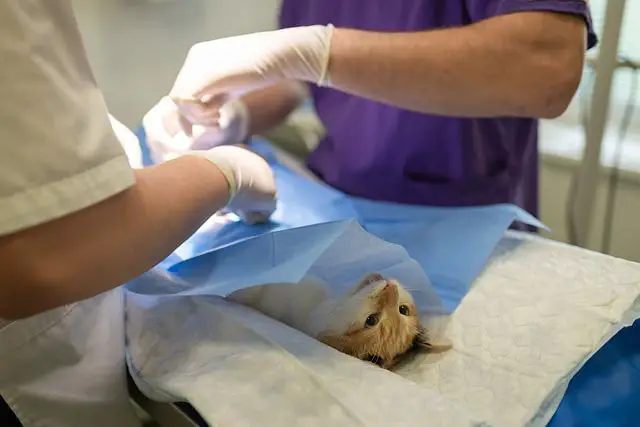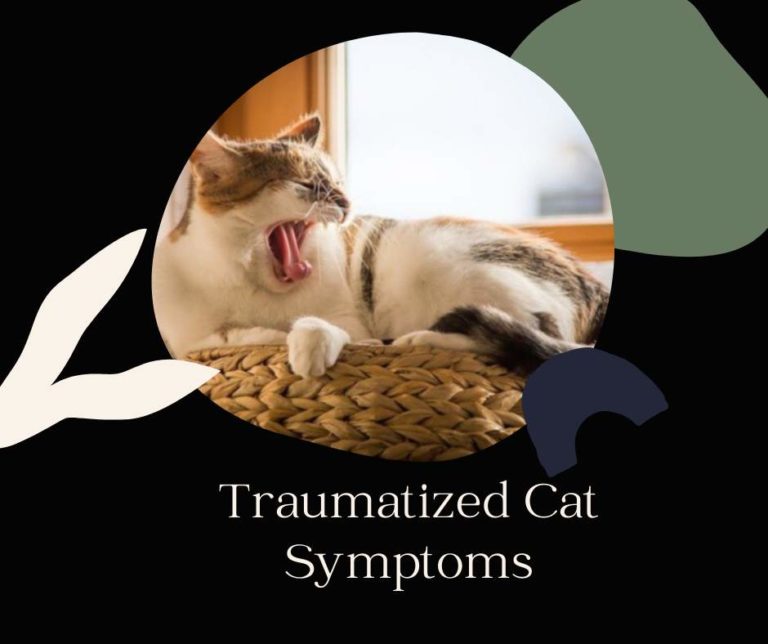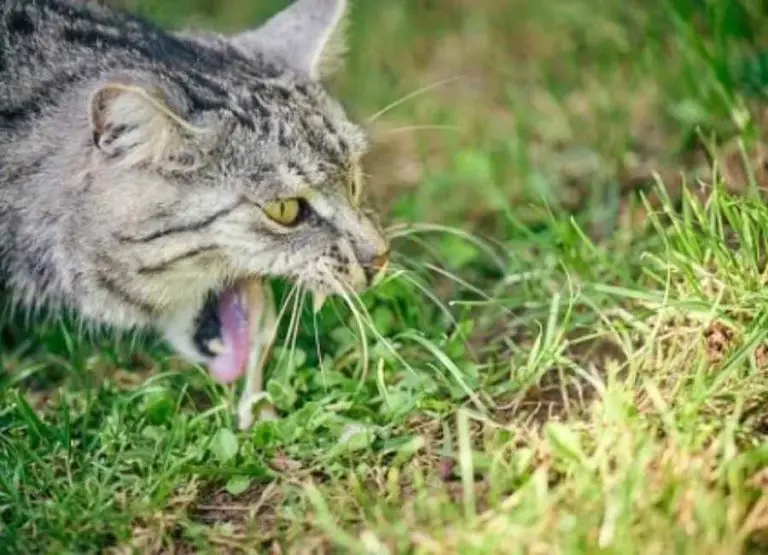How To Know If Cat Has Parasites [9 Signs Explained]
![How To Know If Cat Has Parasites [9 Signs Explained] How To Know If Cat Has Parasites](https://petcreeks.com/wp-content/uploads/2023/04/How-To-Know-If-Cat-Has-Parasites.jpg)
Are you a cat owner who wants to ensure the health and happiness of your furry friend? One thing you need to watch out for is parasites.
These pesky critters can cause all sorts of issues for your cat, from stomach problems to skin irritations.
But how can you tell if your cat has parasites? Don’t worry, we’ve got you covered.
In this blog post, we’ll show you some signs to look out for and provide tips on how to keep your cat parasite-free.
So grab a cup of coffee and let’s dive in!
How To Know If Cat Has Parasites
Cats with parasites may exhibit a variety of symptoms and these can include a dull coat, coughing, vomiting, diarrhea, mucousy or bloody feces, loss of appetite, pale mucous membranes, or a potbellied appearance.
Other signs of parasites in cats can include vomiting (sometimes with worms in the vomit), diarrhea (with or without blood), tarry feces, weight loss, distended abdomen, skin lesions, and generally poor body condition and a dull coat.
Additionally, cats with parasites may experience weakness, dehydration, pale lips and gums due to anemia, low blood pressure, shock, and even death in severe cases.
If you suspect your cat has parasites, it is important to take them to a veterinarian for diagnosis and treatment.
Types of cat parasites
There are several types of parasites that can affect cats, including:
- Roundworms: such as Toxocara cati and Toxascaris leonina.
- Hookworms: such as Ancylostoma tubaeforme and Ancylostoma braziliense.
- Tapeworms: such as Dipylidium caninum and Taenia taeniaeformis.
- Heartworms: such as Dirofilaria immitis.
- Fleas: These can cause flea allergy dermatitis and transmit diseases such as bartonellosis.
- Ticks: These can transmit diseases such as Lyme disease and anaplasmosis.
- Ear mites: These can cause inflammation and infection of the ear canal.
- Intestinal protozoa: such as Giardia and coccidia.
Signs and symptoms of cat parasites
Here are some common signs and symptoms of cat parasites:
1. Itching and Scratching
Common external parasites like fleas and mites can make cats extremely itchy.
While mites are microscopic parasites that burrow into your cat’s skin, fleas are small, wingless insects that feed on the blood of your cat.
The frequent scratching can cause skin infections, scabs, and hair loss, these are clear signs of parasites in cats.
Fleas can also result in flea allergy dermatitis, an allergic response to the saliva of the flea.
2. Persistent Diarrhea
In cats, diarrhea is a typical symptom of several different parasites kinds.
Diarrhea can be brought on by parasites such as roundworms, hookworms, and coccidia that harm the lining of the intestines.
Dehydration and electrolyte imbalances brought on by diarrhea can be fatal if left untreated.
3. Visible Parasites
In a cat’s feces or vomit, several parasites can be found, including roundworms and tapeworms.
While tapeworms may resemble little grains of rice, roundworms may resemble spaghetti.
It’s crucial to take your cat to the clinic for treatment if you find these worms in their feces or vomit.
If you see fleas or ticks on your cat, it’s important to remove them promptly to prevent further infestation.
4. Poor coat condition
External parasites like fleas and mites can give cats’ coats a dull or unkempt appearance.
Small, wingless insects known as fleas live exclusively on the blood of cats.
They might make you itch and scratch, which might harm your coat.
Small arachnids called mites can penetrate a cat’s skin and cause baldness, scabs, and skin irritation.
5. Persistent weight loss
Cats can lose weight as a result of a particular form of parasite called tapeworms.
These worms, which can reach lengths of several feet, are found in the intestines of cats.
When tapeworm eggs are consumed by a cat, the eggs may hatch, and the larvae may cling to the intestinal lining.
Despite having a healthy appetite, the worms deplete the cat’s nutrients, which results in weight loss.
6. Persistent Vomiting
Cats who have roundworms, a common form of the parasite, may vomit persistently.
These worms, which can reach lengths of several inches, are found in cats’ intestines.
Roundworm larvae can spread to many sections of the body after being consumed by cats, which might result in vomiting.
The vomit caused by these parasites in cats could be frothy or have worms in it.
7. Lethargy
Cats who have parasites may feel weak and exhausted. They can be less active and sleep more than normal.
This is due to anemia, a disease in which there are not enough red blood cells to deliver oxygen throughout the body, which is brought on by the parasites eating away at the cat’s food supply.
8. Changes in appetite
Cats’ appetites can also be impacted by parasites.
While some cats may suffer from decreased appetite and lose interest in food, others may feel more hungry and overeat.
If left unaddressed, these fluctuations in appetite might result in weight loss or gain, respectively, and other health issues.
9. Respiratory Issues
A cat’s respiratory system can become infected by parasites, which can cause coughing, wheezing, or other respiratory symptoms.
For instance, lungworms are a particular kind of parasite that affects the lungs and respiratory system, resulting in coughing, breathing difficulties, and other respiratory symptoms.
Diagnosis of cat parasites
To diagnose cat parasites, a veterinarian can examine the blood, feces, or urine of the cat.
Diagnosis is confirmed by finding parasite eggs in the stool during a microscopic examination.
A veterinarian can perform these diagnostic tests and identify the specific type of parasite that is affecting the cat.
Learn more about common ways indoor cats get worms.
Treatment of cat parasites
The treatment of cat parasites depends on the type of parasites present.
Some common types of parasites that infect cats include roundworms, tapeworms, hookworms, and heartworms.
Treatment often involves medication prescribed by a veterinarian.
The specific medication used will depend on the type of parasite present.
For example, dewormers are typically used to treat intestinal parasites such as roundworms and tapeworms.
Other medications may be used to treat heartworms, although it can take a few days for a worm to leave cats after medications.
It’s important to follow the treatment regimen prescribed by your veterinarian and to provide follow-up care as needed to ensure that the parasites are completely eradicated.
Additionally, preventing parasites is important for the health of your cat.
Learn more about some common dewormer side effects on cats.
Ways of Preventing cat parasites
Here are some common ways of preventing cat parasites:
- Regular veterinary care: An essential aspect of preventing cat parasites is to take your cat to the veterinarian regularly. The veterinarian will perform a physical exam and check for parasites in your cat, which can help detect and treat any infections early.
- Flea and tick prevention: Fleas and ticks are common parasites that feed on the blood of cats and can cause various health problems. There are many products available to prevent and control flea and tick infestations, including topical treatments, collars, and oral medications.
- Keeping your cat indoors: Keeping your cat indoors can help prevent exposure to parasitic organisms and reduce the risk of contracting some parasites, such as fleas, ticks, and heartworms.
- Regular grooming: Brushing your cat’s coat regularly can help remove fleas, ticks, and other parasites. It also helps to keep your cat’s coat clean and healthy.
- Clean litter box: Clean the litter box regularly; this can help to prevent the transmission of some parasites and maintain optimal hygiene levels.
- Proper diet: Proper nutrition and hydration are vital in maintaining your cat’s health condition. A well-fed cat can have better immunity and can control the spread of parasitic infections better.
- Regular cleaning: Regular cleaning of your cat’s environment is crucial to control the spread of parasites. Regularly vacuuming carpets, upholstery, and floors can help remove fleas, ticks, and other parasites that may be hiding in these areas.
- Avoiding contact with wild animals: Wild animals, including rodents, can carry parasites. By avoiding contact with wild animals, owners can minimize the risk of their cats contracting parasites from other animals.
- Parasite control: There are products available to control common parasites, such as heartworms, roundworms, and hookworms. These products are available in the form of oral medication or topical treatment, and administering them as per prescription can help in parasite control.
Learn more about common ways indoor cats get parasites.
Frequently Asked Questions
What are some common signs that my cat has parasites?
Some common signs of parasitic infection in cats include diarrhea, vomiting, weight loss, a dull coat, and a lack of appetite.
In some cases, you may even be able to see visible signs of parasites in your cat’s feces or around its anus.
How do cats get parasites?
Cats can get parasites from a variety of sources, including contaminated food or water, contact with infected animals, and exposure to contaminated soil.
Are all parasites harmful to cats?
While not all parasites are harmful to cats, many can cause serious health problems if left untreated.
Some of the most common parasites found in cats include roundworms, hookworms, tapeworms, and fleas.
Can I prevent my cat from getting parasites?
Yes, there are several steps you can take to help prevent your cat from getting parasites, including keeping their litter box clean, feeding them a high-quality diet, and providing regular veterinary care.
How are parasites diagnosed in cats?
A veterinarian can diagnose parasites in cats through a physical exam and by analyzing a fecal sample for the presence of parasites.
Can parasites in cats be treated?
Yes, many parasitic infections in cats can be treated with medication prescribed by a veterinarian.
The specific treatment will depend on the type of parasite and the severity of the infection.
Conclusion
In conclusion, keeping an eye out for any changes in your cat’s behavior, appetite, and litter box habits can help you identify if your cat has parasites.
Regular check-ups with your vet and preventative measures such as flea and tick medication can also help keep your cat healthy and parasite-free.
Remember, early detection and treatment are key to keeping your furry friend happy and healthy!



![How Do Cats Get Bacterial Infections [12 Hints] How Do Cats Get Bacterial Infections](https://petcreeks.com/wp-content/uploads/2021/03/How-Do-Cats-Get-Bacterial-Infections.jpg)


